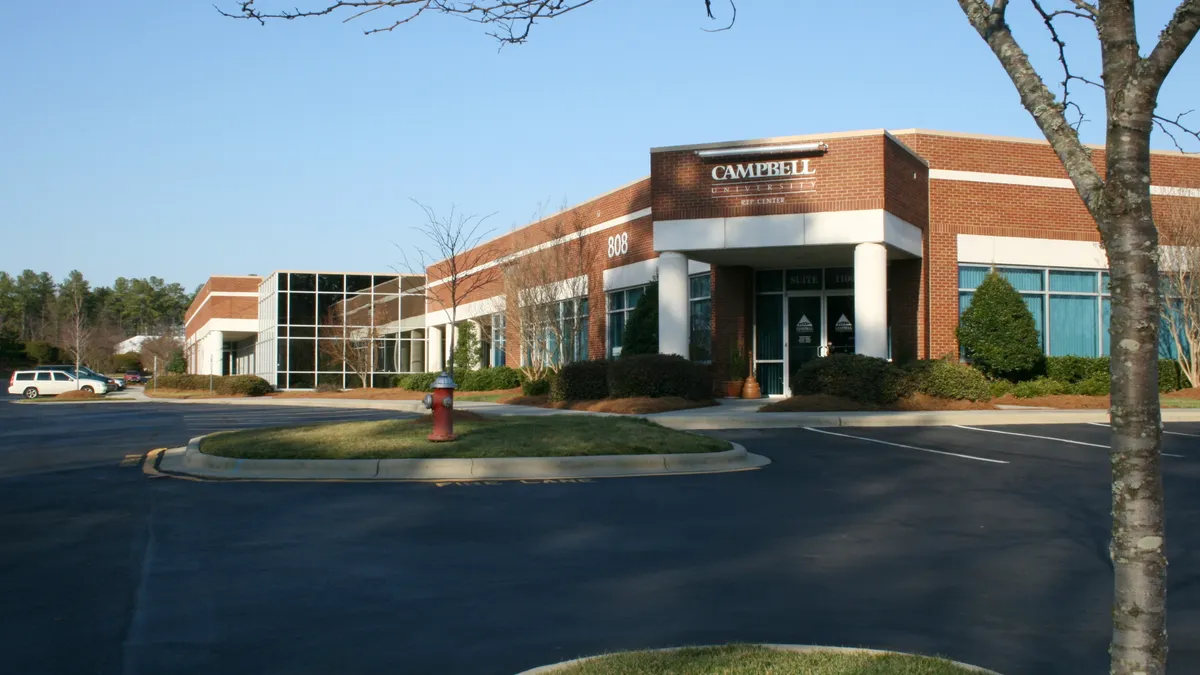Dive Brief:
- The Campbell University School of Law announced this week it will not participate in U.S. News & World Report’s Best Law Schools rankings, joining many other institutions spurning the list over equity-related concerns.
- Unlike law schools that initially rejected the rankings, which include those at Yale and Harvard universities, Campbell’s school falls toward the bottom of U.S. News’ index.
- Experts have said mid- and low-tier law schools have more to lose by joining the rankings revolt, as the higher-placed schools have well-known reputations and will likely suffer little fallout from their decisions.
Dive Insight:
Ivy League institutions Yale and Harvard shook the higher education world in mid-November when they said they would no longer submit data to U.S. News for its influential rankings.
While colleges often tout their high placement in the databases, the rankings’ methodology and their tendency to shape institutional decision making has drawn frequent criticism.
In their announcements, Harvard and Yale said the U.S. News rankings penalize colleges that support low-income students and students entering public-interest careers.
An exodus of law schools followed. Almost all of the top 15 institutions on U.S. News’ rankings have since abandoned them.
In response, U.S. News said it would continue to rank the law schools regardless, as part of its journalistic mission. Much of the data U.S. News uses to formulate the rankings is available through the American Bar Association.
Campbell law school’s dean, Rich Leonard, said in a statement that the institution does not oppose objective rankings.
However, Leonard said, the U.S. News rankings methodology relies in part on evaluations from lawyers, judges and other law schools — reputational assessments that disadvantage strong regional law schools. Collectively, these account for 40% of the methodology.
The publication also tends to underweight factors “critical to prospective students,” like bar passage and employment outcomes, Leonard said.
Graduates’ employment rates 10 months after leaving school accounts for 14% of the methodology. Bar passage rates are 3%.
“The U.S. News methodology is substantially flawed, and we are no longer willing to spend the significant administrative time necessary to comply with requests for data irrelevant to the needs of prospective students,” Leonard said.
Another recent departure from the rankings is the University of Virginia’s law school, which occupies the No. 8 spot. Its dean, Risa Goluboff, said in a statement the rankings “fail to capture much of what we value at UVA — facilitating access to legal education and the legal profession for students from every background; fostering the free exchange of ideas within a community of joy, humanity, and trust; providing top-notch teaching by accomplished faculty; supporting public service; and launching our graduates into the stellar career paths of their choosing.”
No college has dropped out of U.S. News’ undergraduate rankings. Experts told Higher Ed Dive institutions may be waiting closer until the rankings are published to make that sort of decision. U.S. News typically releases the rankings in September.











